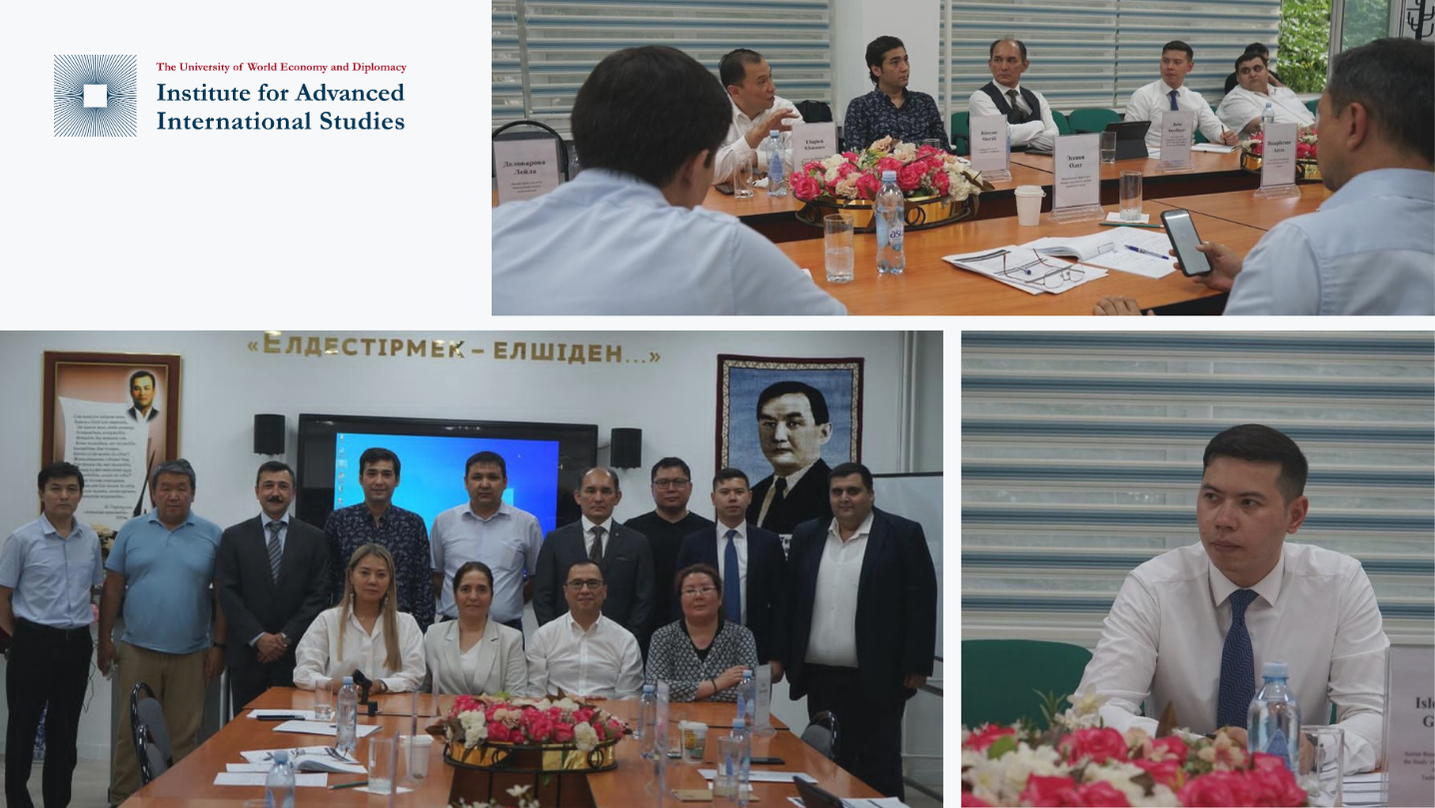
On June 10, 2024, Associate Professor Ulugbek Khasanov of the Department of International Relations at the University of World Economy and Diplomacy (UWED), along with Senior Research Fellow Islomkhon Gafarov at the Institute for Advanced International Studies (IAIS), participated in the international conference “Afghanistan in the New Geopolitical and Geoeconomic Realities”, hosted by Al-Farabi Kazakh National University (KazNU). The event saw the presence of KazNU leadership, scholars, and experts from Kazakhstan, Uzbekistan, Tajikistan, and Afghanistan.
Opening remarks were delivered by Leyla Delovarova, Dean of the Faculty of International Relations, and Oleg Esenov, Deputy Director of the International Center for Science Development at KazNU. In their addresses, they emphasized the diverse approaches of Central Asian countries towards Afghanistan and the necessity of coordinated policies in this regard.
In the first session, UWED Associate Professor Ulugbek Khasanov presented a report on Uzbek-Afghan relations. He highlighted the geopolitical dimensions of the interactions between the two countries, stressing that Afghanistan serves as a crucial transit route for Tashkent, providing access to seaports for global trade.
The second session was attended by Islomkhon Gafarov, Senior Research Fellow of the Institute for Advanced International Studies. His report focused on the Taliban’s relationship with Pakistan. Gafarov noted that the tense Afghan-Pakistani relations are prompting Kabul to reconsider its trade and logistics strategies. Consequently, the Taliban is currently prioritizing the development of Iran’s Chabahar port.
The conference thoroughly examined key issues related to the current situation in Afghanistan and its implications for Central Asian countries. The conference underscored the importance of collaborative efforts and international cooperation in addressing the complex challenges arising from the situation in Afghanistan and provided recommendations for Central Asian nations to coordinate their policies and actions regarding this matter.